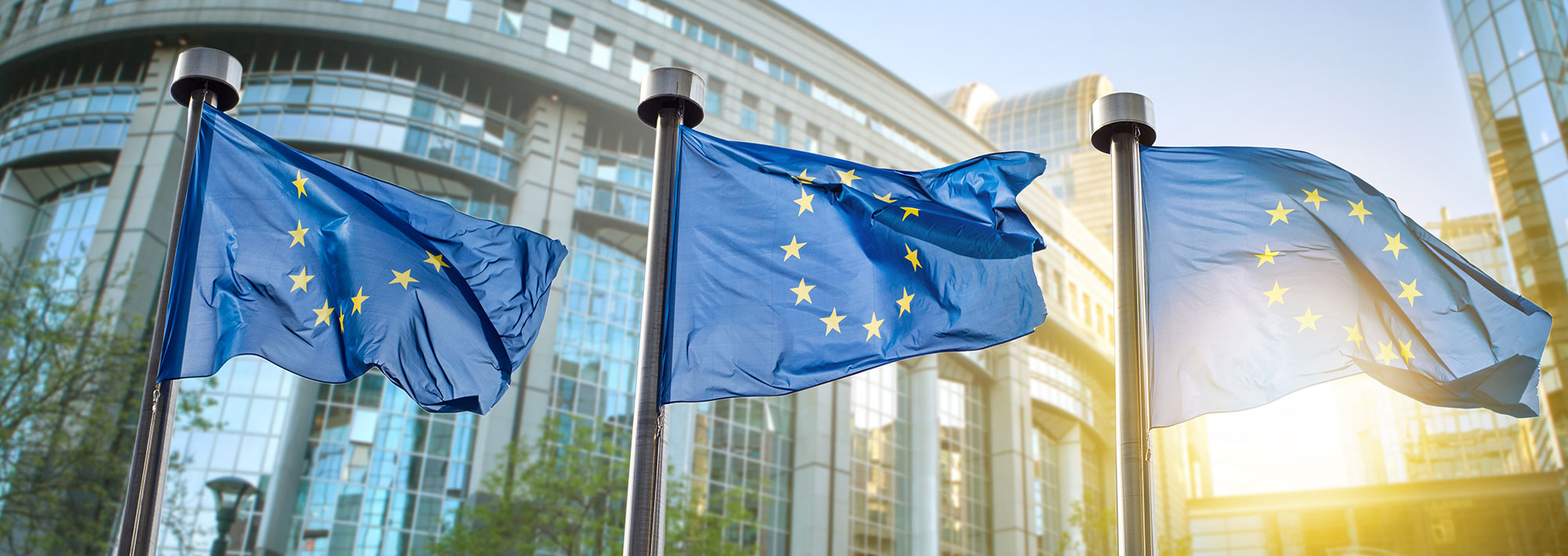DCU’s LIFE programme: insight into an award winning business and entrepreneurship module

DCU’s Learning Innovation for Enterprise (LIFE) module has won the ECIU Team Award 2020 for innovation in teaching and learning. This is the third award received this year, having been selected by AACSB’s Business Education Alliance as a highlight for their 2020 ‘Innovations That Inspire’ awards and scooping the 2020 DCU President’s Award for Excellence in Teaching & Learning.
Run by the DCU Business School, the LIFE business and entrepreneurship module is designed for first-year undergraduates to illustrate how innovation unfolds in key commercial, entrepreneurial and organisational contexts.
It helps students to learn the A-Z of business in all its forms through Hackathons, online learning, conference seminars, applied projects, reflective writing and through getting out there and hearing directly from businesses.
The following overview from Dr. Roisin Lyons, LIFE module coordinator and Assistant Professor in Entrepreneurship at DCUBS, provides a snapshot of what benefits this programme has for students and what makes it unique.
What does the module involve?
We designed and curated four distinct sets of experiences for students. The first requires them to participate in ‘Startup Week Dublin’ where they attend talks, seminars, workshops and events focused on the entrepreneurial process.
The second element brings students into contact with the world of the ‘intrapreneur’. Last year for example, they met with the Head of the Innovation Lab at Citibank and worked on live innovation projects aimed at developing new ideas around banking for millennials.
Family enterprise is the focus of the third element. We flip the classroom whereby students apply their new knowledge to real-life case studies, interviewing family business leaders and creating documentary-style videos and podcasts depicting innovation within these multi-generational firms.
The fourth section focuses on social enterprise. We create a social innovation hackathon series where students attend talks and receive coaching from Ireland’s thought-leaders across a range of social issues. In March 2020 we hosted four daylong hackathons, attended by over 100 students and 20 industry professionals per day. Last year, hackathon themes included mental health and wellbeing, fast fashion, smarter travel, climate action and sustainability, and inclusive society.
What makes LIFE unique?
In developing the module, we undertook detailed feasibility studies and benchmarking exercises to identify best practice internationally. The ability for undergraduate students to experience entrepreneurship in different contexts, such as corporate enterprise, family business, entrepreneurship and social enterprise, is an invaluable tool as they progress in their careers.
Students and student societies are also heavily involved in the planning process— they can vote on relevant topics and speakers to embed into the module, and collaborate on events.
What are the benefits for students?
The module equips students with the mindset and tools of creativity, innovation and enterprise which will prove invaluable to them both in their career and their life.
It will give them the competence and confidence to look beyond obvious solutions; to make surprising connections and to have a spirit of positive curiosity as they approach problems, issues and opportunities. Benefits for students include:
- Employability Skills. Our module is designed to ensure students are equipped with the skills required to flourish in the workplace, gaining first-hand insights into the increasingly dynamic world of work.
- Entrepreneurial Skills. By providing opportunities for entrepreneurial experiential learning, our module fosters a spirit of innovation and promotes an entrepreneurial mind-set in our students.
- Integrating Research Opportunities. Our module is led by research active staff, ensuring the integration of cutting-edge research into all teaching activities. The module provided research-integrated learning experiences through our partnership with DCU National Centre for Family Business, an established university research centre.
- Technology Enhanced Learning. We utilised new digital technologies in the teaching and assessment of our module. Our team pioneered use of a varied collection of online activity types, including portfolio reflections, forums, and questionnaires.
Speaking about winning the ECIU Team Award, Dr Roisin Lyons, added:
"We were thrilled to receive this recognition for our new module. Our goal was to deliver an experiential and interactive, blended learning experience for students, and we consulted with industry and academic experts to develop the curriculum and pedagogy. We truly believe that students benefited greatly from the module and are determined to continue innovating and iterating the module as we deal with the changing educational landscape."
Special thanks to the Business School as the module was developed as part of an extensive curriculum review. In addition, the TEU were instrumental in assisting us in the module development process and in support of the social innovation hackathon series.
LIFE team members in DCU Business School include Dr Roisin Lyons, Dr Peter Robbins, Dr Catherine Faherty, Professor Colm O’Gorman, Dr Shadi Karazi, Dr Philip O’Donnell and Karen Maguire.
Text and photos: Dublin City University

ECIU is the leading international consortium of research intensive universities, with collective emphasis on innovation, creativity and societal impact, driving the development of a knowledge-based economy.


